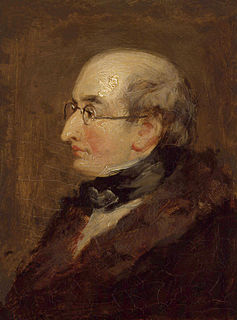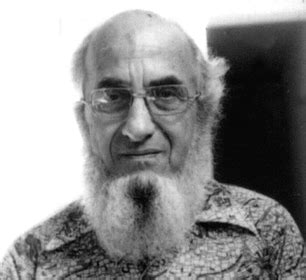A Quote by Benjamin Haydon
No man, perhaps, is so wicked as to commit evil for its own sake. Evil is generally committed under the hope of some advantage the pursuit of virtue seldom obtains. Yet the most successful result of the most virtuous heroism is never without its alloy.
Related Quotes
It is, indeed, a fact that, in the midst of society and sociability every evil inclination has to place itself under such great restraint, don so many masks, lay itself so often on the procrustean bed of virtue, that one could well speak of a martyrdom of the evil man. In solitude all this falls away. He who is evil is at his most evil in solitude: which is where he is at his best - and thus to the eye of him who sees everywhere only a spectacle also at his most beautiful.
In the twentieth century, men -- all of us -- find themselves compelled to commit or condone evil for the sake of preventing an evil believed to be greater. And the tragedy is that we do not know whether the evil we condone will not in the end be greater than the evil we seek to avert-- or be identified with.
History tells us more than we want to know about what is wrong with man, and we can hardly turn a page in the daily press without learning the specific time, place, and name of evil. But perhaps the most pervasive evil of all rarely appears in the news. This evil, the waste of human potential, is particularly painful to recognize for it strikes our parents and children, our friends and brothers, ourselves.
I do not believe that a world without evil, preferable in order to ours, is possible; otherwise it would have been preferred. It is necessary to believe that the mixture of evil has produced the greatest possible good: otherwise the evil would not have been permitted. The combination of all the tendencies to the good has produced the best; but as there are goods that are incompatible together, this combination and this result can introduce the destruction of some good, and as a result some evil.
Has it occurred to you that transmigration is at once an explanation and a justification of the evil of the world? If the evils we suffer are the result of sins committed in our past lives, we can bear them with resignation and hope that if in this one we strive toward virtue out future lives will be less afflicted.
When one has once accepted and absorbed Evil, it no longer demands the unfitness of the means. The ulterior motives with which youabsorb and assimilate Evil are not your own but those of Evil.... Evil is whatever distracts. Evil knows of the Good, but Good does not know of Evil. Knowledge of oneself is something only Evil has. One means that Evil has is the dialogue.... One cannot pay Evil in installments--and one always keeps on trying to.








































